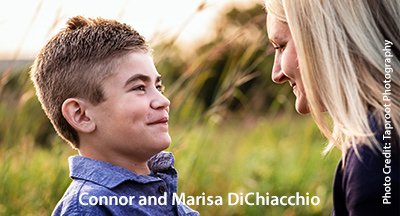Boy With Alzheimer’s-like Illness Races For Time
By Dennis Thompson HealthDay Reporter
MONDAY, Nov. 2, 2020 (HealthDay News) — Connor Dobbyn is an energetic and loving 12-year-old, but he’s fading away every second.
Connor has Sanfilippo syndrome, a genetic brain disorder in children that experts compare to Alzheimer’s disease.
The boy already has lost some of what he’s learned in his short time on Earth, and every day he loses a little more.
“We’re on borrowed time. They don’t live through their teens,” said his mom, Marisa DiChiacchio, who lives with Connor in West Chester, Pa. “We have six years left, at most.”
Here’s the good news: Researchers think they’ve found a cure for Connor’s type of Sanfilippo, a therapy that replaces the bad gene in his body with a healthy working version.
But they need millions of dollars in funding to test this potential cure. Connor’s parents have set up a GoFundMe page with a goal of $3 million for a clinical trial that could save their son’s life.
“The research is done. It’s like right there, but they need the money to fund the clinical trial,” DiChiacchio explained.
Kids with Sanfilippo syndrome suffer from the build-up of a long-chain sugar molecule called heparan sulfate, which is normally used by the body to build cartilage, connective tissues, nerve tissues and skin, according to the Nemours Foundation.
These kids have a defect in one of the genes that make enzymes needed to break down heparan sulfate. Without those enzymes, heparan sulfate “builds up everywhere in the body and the brain,” explained Cara O’Neill, chief science officer and co-founder of the Cure Sanfilippo Foundation.
As the substance clogs the brain and body, kids begin experiencing the sort of mental and physical decline associated with dementia in seniors. Kids lose knowledge and skills they’ve gained, develop seizures, experience hearing and vision loss, find it difficult to walk and move, and even struggle to chew and swallow food, O’Neill said.
“These kids become nonverbal. They lose their ability to walk and talk. They’re in wheelchairs and in strollers. Almost all of them develop seizures and different movement disorders,” DiChiacchio said. “There’s literally no cure at this point. These kids are dying.”





farmacie online sicure https://farmaciait.pro/ farmacie on line spedizione gratuita